#Kenneth Werner
Text

Yes! This is REALLY far away from my usual type of post, but Oppenheimer was too good of a movie to not be mentioned. The BAFTA was truly well-deserved, and I'm sure this movie, like many others, will go down in history as one of the greatest of all time.
¬ Th3r3534rch1ngr4ph
#oppenheimer#front cover of time magazine#what a dude#ladies' man#oppen-player#oppenheimer bafta win#cilian murphy#florence pugh#j robert oppenheimer#richard p feynman#albert einstein#niels bohr#werner heisenberg#paul dirac#emily blunt#matt damon#robert downey jr#robert downey junior#kenneth branagh#tom conti#matthias schweighöfer#jack quaid
2 notes
·
View notes
Text
'The one thing you need to know about Christopher Nolan’s “Oppenheimer” is that it moves incredibly fast and covers a lot of ground. For most of its three-hour runtime, the atomic bomb epic can feel as if you’re reading a dense biography about J. Robert Oppenheimer at three times the normal speed. With so many scientist characters orbiting Oppenheimer at light speed, you’d be forgiven for feeling a little lost at times.
To help watch “Oppenheimer” with a bit more clarity, it’s important to know the movie takes place during three time periods. One timeline is set in 1954 as the U.S. Atomic Energy Commission (AEC) holds a security hearing to investigate whether or not Oppenheimer (Cillian Murphy) is a Soviet spy. The hearing prompts the film to flash back to the events of Oppenheimer’s life, from his university days to his role in creating the atomic bomb. These portions of the film, shot in color, make up the bulk of “Oppenheimer’s” three-hour runtime.
A third storyline is shot in black and white and takes place in 1959 as Lewis Strauss (Robert Downey Jr.), the former chairman of the U.S. Atomic Energy Commission, is seeking to become U.S. Secretary of Commerce under President Dwight D. Eisenhower. Strauss finds himself at the center of his own U.S. Senate confirmation hearing, which threatens to expose his involvement in the events of the 1954 timeline.
“Oppenheimer” creates its own kind of fission by constantly jumping between these time periods, as characters and events twist depending on the perspective. Whether you want to go into “Oppenheimer” with a bit more knowledge or you’ve just seen it and are wondering who everybody was (it can be hard to keep track given the film’s relentless pace), below is your guide to the film’s cast and the real historical figures they play.
Cillian Murphy as J. Robert Oppenheimer
Cillian Murphy stars as theoretical physicist J Robert Oppenheimer, known as the “father of the atomic bomb.” Oppenheimer was named the director of the Manhattan Project’s Los Alamos Laboratory in New Mexico. It’s here where Oppenheimer and his team developed the first atomic bomb for World War II. The bomb was detonated on July 16, 1945 in what is referred to as the Trinity test, with Oppenheimer present during the demonstration.
For Murphy, “Oppenheimer” marks his first time leading a Nolan movie in over 20 years. The two worked together on five previous features: Three Batman films, “Inception” and “Dunkirk.” Murphy revealed last year that in prepping to play Oppenheimer he skipped over all the mechanics of what makes an atom bomb and instead focused on the man himself.
“[I prepped by doing] an awful lot of reading,” Murphy recently told The Guardian. “I’m interested in the man and what [inventing the atomic bomb] does to the individual. The mechanics of it, that’s not really for me — I don’t have the intellectual capability to understand them, but these contradictory characters are fascinating.”
Emily Blunt as Katherine "Kitty" Oppenheimer
Emily Blunt stars as Katherine “Kitty” Oppenheimer, who married J Robert Oppenheimer in 1940. Born in Germany, Kitty was a botanist and biologist whose early life was associated with the Communist party after she became the common-law wife of party member Joseph Dallet Jr. She met Oppenheimer in 1939 at the California Institute of Technology, where he was a part time physics teacher and she was assisting physicist Charles Lauritsen. They began an affair while she was still married to medical doctor Richard Stewart Harrison. Kitty left Harrison and married Oppenheimer in November 1940 after she became pregnant with their first child, Peter. The couple moved to Los Alamos in March 1943 so that Oppenheimer could work full time on his Manhattan Project duties. They had their second child there. The isolation of living in Los Alamos contributed to Kitty’s alcoholism.
Matt Damon as Leslie Groves
Matt Damon plays Leslie Groves, who was the director of the Manhattan Project. The group’s mission was to develop the first atomic bomb during World War II. Groves had previously overseen the construction of the Pentagon while serving as an officer in the United States Army Corps of Engineers. As director of the Manhattan Project, Groves approved Los Alamos, New Mexico as one of several testing sites for the development of the atomic bomb. He personally recruited Oppenheimer to lead the charge at Los Alamos, a divisive choice at the time as Oppenheimer lacked a Nobel Prize and administrative leadership experience. Groves was on site for the detonation of the first atomic bomb on July 16, 1945.
Robert Downey Jr. as Lewis Strauss
Robert Downey Jr. plays Lewis Strauss, who served two terms on the U.S. Atomic Energy Commission (AEC). Strauss was the organization’s chairman during his second term. He became an enemy of Oppenheimer’s due to the AEC’s controversial hearings in April 1954 that led to Oppenheimer’s security clearance being revoked. The hearings came as a result of Strauss becoming convinced that Oppenheimer was a Soviet spy. Strauss became convinced of the fact after Oppenheimer’s claim that the Soviets were four years behind the U.S. in nuclear weapons development got challenged. Strauss eventually asked FBI director J. Edgar Hoover to run surveillance on Oppenheimer, and the organization ran a wiretapping of Oppenheimer’s phones. Illegally-obtained conversations Oppenheimer had over the phone with lawyers and more were used by Strauss to stack the hearing’s odds against Oppenheimer.
Florence Pugh as Jean Tatlock
Florence Pugh stars as Jean Tatlock, who had a relationship with Oppenheimer before and during his marriage to Katherine “Kitty” Oppenheimer. The two met at the University of California, Berkeley, where Tatlock was a graduate student and Oppenheimer was a physics professor. Tatlock was a member of the American Communist Party. The film shows the two first meeting at a members gathering that Oppenheimer is brought to by his brother, Frank, who also had ties to the American Community Party. Tatlock’s relationship with Oppenheimer was cited during Lewis Strauss’ AEC hearing because of her Communist ties. Tatlock died by suicide at the age of 29 after struggling with clinical depression.
Josh Hartnett as Ernest Lawrence
Ernest Lawrence, played by Josh Hartnett, was a nuclear physicist from Canton, South Dakota who was awarded the Nobel Prize in Physics in 1939 for his invention of the cyclotron, a particle accelerator that was the first cyclical machine of its kind. When audiences first meet Lawrence in the film, he’s in the process of building that machine at the University of California, Berkeley. It’s here where Lawrence and Oppenheimer became close friends. Lawrence is credited with recommending to Leslie Groves that Oppenheimer be named the director of the Manhattan Project’s Los Alamos research site. Lawrence went on to assist the Manhattan project with uranium-isotope separation.
Casey Affleck as Boris Pash
Boris Pash, played by “Manchester by the Sea” Oscar winner Casey Affleck, was a military intelligence officer in the United States Army. During World War II, Pash was tasked with investigating potential Soviet spy activity within the University of California, Berkley’s radiation laboratory. Oppenheimer was included among those interrogated by Pash, who determined that Oppenheimer was not a Soviet spy but may be connected with the Communist party given his previous relationships (see Jean Tatlock above). Pash suggested Oppenheimer be accompanied by counter-intelligence agents while on site in Los Alamos.
Rami Malek as David Hill
David L. Hill was an associate experimental physicist at the University of Chicago’s Met Lab during the Manhattan Project. Acording to the Atomic Heritage Foundation: “On December 2, 1942, he was one of the 49 scientists who witnessed the world’s first nuclear reactor to go critical.” Hill was also one of 70 scientists and workers to sign the Szilard Petition, a document written by Leo Szilard petitioning President Truman to avoid dropping the atomic bombs on Japan. In the film, Hill pops up in the 1959 timeline to disrupt Lewis Strauss’ bid for U.S. Secretary of Commerce by revealing the devious tactics Strauss used during the AEC hearing that stripped Oppenheimer of his security clearance.
Kenneth Branagh as Niels Bohr
Niels Bohr, played by Christopher Nolan regular Kenneth Branagh, was a physicist from Copenhagen, Denmark who won the Nobel Peace Prize in Physics in 1922 for his work on quantum theory and atomic structure. He is famous for developing the Bohr model of the atom. Whereas the U.S. had the Manhattan Project to develop nuclear weapons, Britain had the Tube Alloys. Bohr was a member of this group and made several visits to the Manhattan Project’s Los Alamos site during the atomic bomb’s design process. He helped Oppenheimer with work on modulated neutron initiators. In the film, Bohr is one of Oppenheimer’s physicist heroes and he attends one of Bohr’s lectures in college.
Benny Safdie as Edward Teller
“Uncut Gems” and “Good Times” co-director Benny Safdie stars as Edward Teller, a theoretical physicist from Budapest who is known as the “father of the hydrogen bomb.” He was included in Oppenheimer’s 1942 summer planning seminar for the Manhattan Project at the University of California, Berkeley, and he moved to the Manahattan Project’s Los Alamos site in 1943 and joined the Theoretical Division, which was overseen by Hans Bethe (played by Gustaf Skarsgård in the movie). As part of the Manhattan Project, Oppenheimer tasked Teller with researching uranium hydride and the mathematics behind a nuclear weapon implosion. He was one of the few scientists on location to watch the detonation of the first atomic bomb during the Trinity test.
Gary Oldman as President Truman
Harry S. Truman, the 33rd president of the United States, is played in “Oppenheimer” by Oscar winner Gary Oldman, whom Nolan worked with on the “Dark Knight” trilogy. The Manhattan Project started in 1942 under Franklin D. Roosevelt’s presidency. Truman served as his vice president and was notoriously not told about the Manhattan Project until he became president himself. As president, Truman authorized the first and only use of nuclear weapons in war against Hiroshima and Nagasaki in Japan. The bombs were dropped on August 6 and August 9, 1945. In the film, Truman assures Oppenheimer that the world will only see the president as a villain of history for dropping the bombs and not their maker himself.
David Krumholtz as Isidor Isaac Rabi
“Harold & Kumar” and “The Santa Clause” actor David Krumholtz stars as Isidor Isaac Rabi, an American physicist who won the 1944 Nobel Prize in Physics for his discovery of nuclear magnetic resonance. His work on radar at the Massachusetts Institute of Technology’s Radiation Laboratory led him to be a consultant on the Manhattan Project. Rabi was called to testify at the AEC security hearing in 1954 and strongly defended Oppenheimer. In the film, Rabi is heard passionately telling the AEC board that Oppenheimer loved and defended his country through his actions in the Manhattan Project.
Matthew Modine as Vannevar Bush
“Stranger Things” star Matthew Modine reunites with Christopher Nolan after “The Dark Knight Rises” to play Vannevar Bush in “Oppenheimer.” Bush was an American engineer who headed the U.S. Office of Scientific Research and Development during World War II. He helped sell the U.S. government on creating the Manhattan Project. Later during World War II, he joined the Interim Committee that advised president Harry S. Truman on nuclear weapons. Bush was present at the Trinity test and watched the detonation of the first atomic bomb.
David Dastmalchian as William L. Borden
Nolan regular David Dastmalchian plays William L. Borden, who served as the executive director of the United States Congress Joint Committee on Atomic Energy from 1949 to 1953. He is best known for writing a letter to FBI director J. Edgar Hoover that accused Oppenheimer of being a Soviet spy, which then led to the Atomic Energy Commission’s security hearing in 1954. The film positions Borden as a puppet of Lewis Strauss, as Strauss wanted to keep his hands dry in Oppenheimer’s public downfall. Borden went on to testify against Oppenheimer during the hearings.
Michael Angarano as Robert Serber
Michael Angarano stars as Robert Serber, an American physicist who contributed to the Manhattan Project. He previously had worked for Oppenheimer at the University of California, Berkeley and the California Institute of Technology before he was recruited to join the Manhattan Project in 1941. Serber was also involved with a section of the Manhattan Project known as Project Alberta, which aided in the delivery of nuclear weapons during the atomic bombings of Hiroshima and Nagasaki.
Jack Quaid as Richard Feynman
“The Boys” star Jack Quaid plays Richard Feynman, a theoretical physicist from New York City who shared the 1965 Nobel Prize in Physics with Julian Schwinger and Shin’ichirō Tomonaga for work on quantum physics. Feynman joined the Manhattan Project’s Los Alamos operation and was made group leader of Hans Bethe’s Theoretical Division, where he developed the Bethe–Feynman formula for calculating the yield of a fission bomb.
Josh Peck as Kenneth Bainbridge
Former “Drake and Josh” Nickelodeon star Josh Peck plays Kenneth Bainbridge, an American physicist known for his work on cyclotron research at Harvard University. Oppenheimer appointed him the director of the Trinity test. The demonstration was the first time an atomic bomb was detonated and took place July 16, 1945. In the film, it is Bainbridge who acts on Oppenheimer’s order to press the button to detonate the bomb. He allegedly told Oppenheimer after the atomic bomb’s first detonation, “Now we are all sons of bitches.” After witnessing the Trinity test, Bainbridge turned against the testing of nuclear weapons.
Olivia Thirlby as Lilli Hornig
Olivia Thirlby, best known for performances in “Juno” and “Dredd 3D,” stars as Lilli Hornig, a feminist activist and scientist who joined the Manhattan Project efforts. Lilli and her husband, chemist and explosives expert Bruce Hornig, moved to Los Alamos together to work for Oppenheimer. She became a staff scientist for the Manhattan Project.
Dane DeHaan as Kenneth Nichols
Dane DeHaan stars as Kenneth Nichols, a United States Army office from Cleveland, Ohio who worked on the Manhattan Project as a civil engineer. He later oversaw the production of plutonium as the head of the Manhattan Engineer District. Nichols eventually joined the Atomic Energy Commission in 1953 as a general manager and was involved in the security hearing against Oppenheimer. He believed Oppenheimer was a Communist and ruled in favor of stripping Oppenheimer of his AEC security clearance. The film positions Nichols as a mole who encouraged William L. Borden to report Oppenheimer’s alleged Soviet ties to the FBI.
Jason Clarke as Roger Robb
Jason Clarke plays Roger Robb, a United States circuit judge who joined the Atomic Energy Commission as special counsel during the security hearing against Oppenheimer in 1954. The hearing lasted four weeks as Robb and a panel of AEC members interrogated Oppenheimer on the grounds that he was a Soviet spy. Robb was convinced Oppenheimer was a traitor and used dramatic interrogation methods during the hearing to make Oppenheimer appear as guilty as possible. Robb was known for his ruthless tactics. The board voted to strip Oppenheimer of his security clearance.
James D'Arcy as Patrick Blackett
“Cloud Atlas” star James D’Arcy plays Patrick Blackett, an experimental physicist who won the 1948 Nobel Prize in Physics. He is notable in the science community for being the first person to prove that radioactivity can lead to the nuclear transmutation of one chemical element to another. Oppenheimer was one of his most notable students. Early in the film, it’s implied that Blackett was a harsh teacher who did not favor Oppenheimer. He tells Oppenheimer to stay behind while the class attends a lecture by Niels Bohr. A mentally unstable Oppenheimer injects cyanide into an apple on Blackett’s desk. Oppenheimer ultimately gets rid of the apple before Blackett can eat it.
Tony Goldwyn as Gordon Gray
Tony Goldwyn goes from playing the president on ABC’s “Scandal” to starring as Gordon Gray in “Oppenheimer.” Gray was an American attorney and national security government official during Harry Truman and Dwight Eisenhower’s presidential administrations. He was one of the leading members on the AEC committee during the security hearing against Oppenheimer. The film implies that Gray was against Oppenheimer from the start. Convinced Oppenheimer was a Soviet spy, Gray worked with Roger Robb to ensure the outcome of the AEC hearing was not in Oppenheimer’s favor.
Tom Conti as Albert Einstein
Albert Einstein won the 1921 Nobel Prize in Physics and is regarded as the most influential theoretical physicist in history. He pops up throughout “Oppenheimer” as he was friendly with the title character. In real life, Einstein did not work on the Manhattan Project. However, he did join forces with colleagues such as Leó Szilárd, Edward Teller and Eugene Wigner to worn the U.S. government that Germany would win an atomic bomb race if the U.S. did not start getting plans together to create such a weapon. The group wrote a letter to President Roosevelt, which is credited with pushing the U.S. towards the creation of the Manhattan Project.
Alex Wolff as Luis Walter Alvarez
“Hereditary” star Alex Wolff plays Luis Walter Alvarez, who won the 1968 Nobel Prize in Physics for his work on particle physics used in the hydrogen bubble chamber. He was a friend and close colleague of Ernest Lawrence (Josh Hartnett, see above) in the research labs at the University of California, Berkeley. It’s here where Lawrence created the cyclotron, which Alvarez used to produce and study tritium. In the film, Alvarez is with Lawrence and Oppenheimer when they get the news that an atom has been split open for the first time. In real life, Alvarez traveled to Los Alamos and worked on the Manhattan Project.
Dylan Arnold as Frank Oppenheimer
Dylan Arnold stars as Oppenheimer’s brother, Frank. A particle physicist in his own right, Frank conducted research on behalf of the Manhattan Project and was called to Los Alamos by his brother to help prepare the layout and designs for the Trinity test. Frank is most important to Oppenheimer’s story because he was a member of the American Communist Party and invited his brother to attend party gatherings before the Manhattan Project was founded. Oppenheimer’s ties to his brother and more party members put him under scrutiny during the AEC security hearing.
Jefferson Hall as Haakon Chevalier
Haakon Chevalier, played by “Game of Thrones” actor Jefferson Hall, was a French professor at the University of California, Berkeley who became friends with Oppenheimer in 1937. In the film, Oppenheimer befriends Chevalier at a Communist party. The two went on to create the university’s teachers’ union, which angered some of Oppenheimer’s scientist colleagues as the union threw benefits in support of leftist causes. Their friendship was one of the defining parts of the AEC security hearing, as Chevalier told Oppenheimer about Soviet attempts to infiltrate the Manhattan Project. Oppenheimer belatedly reported the information as to protect Chevalier’s identity, which the AEC hearing committee used in favor of stripping Oppenheimer of his security clearance.
Matthias Schweighöfer as Werner Heisenberg
Matthias Schweighöfer, best known for his role in Zack Snyder’s “Army of the Dead” franchise, appears briefly as Werner Heisenberg, the German theoretical physicist who won the 1932 Nobel Prize in Physics for the creation of quantum mechanics. Oppenheimer idolizes Heisenberg in the film and even has a brief visit with him before World War II begins. Heisenberg was not involved in the Manhattan Project and instead worked on Germany’s nuclear weapons program during the war. Knowing how brilliant Heisenberg was and how his genius could aid in Germany’s creation of atomic weapons is part of the reason Oppenheimer needed to move so quickly with the Manhattan Project in Los Alamos.'
#Christopher Nolan#Oppenheimer#Cillian Murphy#Emily Blunt#Kitty#Robert Downey Jr.#Lewis Strauss#Matt Damon#Leslie Groves#Rami Malek#David Hill#Niels Bohr#Kenneth Branagh#Matthias Schweighofer#Werner Heisenberg#Dylan Arnold#Frank Oppenheimer#Jefferson Hall#Haakon Chevalier#Alex Wolff#Luis Walter Alvarez#Tom Conti#Albert Einstein#Olivia Thirlby#Lilli Hornig#James D'Arcy#Patrick Blackett#Tony Goldwyn#Gordon Gray#Jason Clarke
6 notes
·
View notes
Note
Hi! I see in your bio you're interested in wilderness and remote medical care, and was wondering what you mean by remote medical care? Are you referring to any care delivery outside the hospital, or telehealth, or care delivery when resource access is limited/distant? (or something else?)
Also, I'm looking to read more about both wilderness and remote care, if you have any suggestions of articles or books to check out. I'd be interested in books for clinical or general public audiences (I'm an RN myself). Thanks for the help!!
It's when care has to be delivered where resources are limited/distant. By definition, it is where definitive care (such as a EMS, clinic or hospital) is more than 20 minutes away. This is a lot more common than a lot of people think. For example: Hurt and trapped in an elevator, even with someone who knows what they're doing? That counts as remote medical care.
My 2 favorite books on the subject are Improvised Medicine by Kenneth V Iserson and Where There Is No Doctor by David Werner. You can read WTIND here.
22 notes
·
View notes
Text
Aries: Tarantino, F. F. Coppola, Andrea Arnold, Eric Rohmer, Edgar Wright, Ruben Östlund, Josh Safdie, David Lean, Andrei Tarkovsky, Michael Haneke, Martin McDonagh
Taurus: Wes Anderson, Orson Welles, Sofia Coppola, Lars von Trier, Terry Zwigoff, George Lucas, Robert Zemeckis, John Waters, Frank Capra
Gemini: Fassbinder, Hideaki Anno, Makhmalbaf, Agnès Varda, Alex Garland, Clint Eastwood, Yorgos Lanthimos, Aaron Sorkin, Ken Loach, Alexander Sokurov, Giuseppe Tornatore
Cancer: Abbas Kiarostami, Wong Kar-wai, P. T. Anderson, Mike White, Ari Aster, Ingmar Bergman, Krzysztof Kieślowski, Paul Verhoeven, Robert Eggers, Béla Tarr, Mel Brooks, Ken Russell, Sidney Lumet, Kinji Fukasaku
Leo: Alfred Hitchcock, Greta Gerwig, Alain Robbe-grillet, Kubrick, Wes Craven, Taika Waititi, Luca Guadagnino, Christopher Nolan, Polanski, Sam Mendes, Richard Linklater, Nicolas Roeg, James Cameron, Pablo Larraín, M. Night Shyamalan, Iñárritu, Gus Van Sant, Peter Weir, Wim Wenders, Maurice Pialat
Virgo: Tom Ford, Joe Wright, Paul Feig, Dario Argento, David Fincher, Brian De Palma, Baz Luhrmann, Tim Burton, Friedkin, Takashe Miike, Noah Baumbach, Werner Herzog, Elia Kazan, E. Coen
Libra: Julie Dash, Almodóvar, Jacques Tati, Ang Lee, Michelangelo Antonioni, Ti West, Walerian Borowczyk, Nicolas Winding Refn, Satoshi Kon, Kenneth Lonergan, Michael Powell, Jacques Tati, Steve McQueen, Denis Villeneuve
Scorpio: Mike Nichols, Barry Jenkins, Charlie Kaufman, Céline Sciamma, Tsai Ming-liang, Jean Rollin, Scorsese, Louis Malle, Luchino Visconti, François Ozon, Julia Ducournau
Sagittarius: Sion Sono, Cassavetes, Raj Kapoor, Steven Spielberg, Eliza Hittman, Terrence Malick, Ozu, Alfonso Cuarón, Gregg Araki, Larry Charles, Judd Apatow, Kathryn Bigelow, Lenny Abrahamson, J. Coen, Jean Luc Godard, Diane Kurys, Ridley Scott, Lynne Ramsay, Woody Allen, Fritz Lang
Capricorn: Larry Clark, David Lynch, Harmony Korine, Damien Chazelle, David Lowery, Mary Harron, Sergio Leone, Todd Haynes, Pedro Costa, Gaspar, Noe, Fellini, Joseph Losey, Miyazaki, John Carpenter, Steven Soderbergh, Michael Curtiz, John Singleton, Vertov
Aquarius: Jim Jarmusch, John Hughes, Darren Aronofsky, Jodorowski, Michael Mann, Derek Cianfrance, Alex Payne, Truffau, Eisenstein, Tone Hooper
Pisces: Pasolini, Sean Baker, Paul Schrader, Bernardo Bertolucci, Benny Safdie, Jacques Rivette, Bunuel, Luc Besson, David Cronenberg, Spike Lee, Rob Reiner, Mike Mills, Sebastián Lelio, Jordan Peele, Ron Howard, Robert Altman
88 notes
·
View notes
Note
So that ten facts characters thing, it didn't specifically say original characters... but it also said my characters.. but idk sometimes people feel like they have a claim on a blorbo or something.
Um... anyway give me ten facts about Rae (and only if you're up to it, ten facts about Warren?)
Oooh thank you! Let's see... under the cut for space
Rae:
Often speaks with a faint Scottish accent, but it gets thicker when she's tired
Is actually quite handy around the house - her father's a carpenter, and taught her and her sisters quite a bit about general repairs
Can speak seven languages fluently, but can count to ten in over 20
Went through a phase when she was about twelve of pretending she was a mutant with a hidden mutation (most of her friends were mutants who had just recently come into their mutations and she got jealous)
If Apocalypse hadn't forcibly expressed her mutation, it only would have been expressed through an extremely physically stressful event (like a car accident, or going into labor)
The only pets she's ever had were fish (her mom is allergic to pet dander, and as an adult Rae moves around too much to have a pet)
Was once dared by her friends to try and ride one of the Highland cattle they found out in a field somewhere (she did it)
Once got into a fight on Jess' behalf after her Prom date stood her up. Rae go a three-day suspension for it, but the boy apologized to Jess
Doesn't remember when exactly her phobia developed, but her earliest memory of it is going into a panic attack in the middle of English class bc one of her classmates kept reading her mind to get the answers (and she could sense it happening)
Once they're reasonably settled-down, she and Warren take dance classes together :)
Warren (it's blorbo time babyyyy):
Canon middle name is Kenneth
Once appeared in the comics as a character called "The Fallen", with bat wings
Once appeared in the comics with cosmic/fire wings in X-Men Blue
In Marvel 1602, his name is changed to Werner
Both actors who have played his adult, live-action versions were named Ben (Ben Hardy in Apocalypse and Ben Foster in Last Stand - and I say adult because the kid-Warren at the start of Last Stand is played by an actor named Cayden Boyd)
In the comics, once was mocked for having "the largest shoulder blades I've ever seen" (paraphrased)
His wings in The Last Stand were such a big project that they had a dedicated feather department for the special effects crew. It was led by Laurel Taylor
Canonically can lift his own weight plus 200 pounds when flying
Canonically, his mutation prevents his body from storing excess body fat (so that he can get himself off the ground and fly effectively)
In the comics, strikes up a romance with Psylocke after both of them were involved in the business with Apocalypse. He's also had a relationship with a non-mutant named Candy Southern
#i kid you not coming up with ten of warren's was EASIER than coming up with ten for rae#my friends!!!#answered asks#ask game#my ocs#rae mckinney
6 notes
·
View notes
Text
50 Favorite First Viewings of 2022


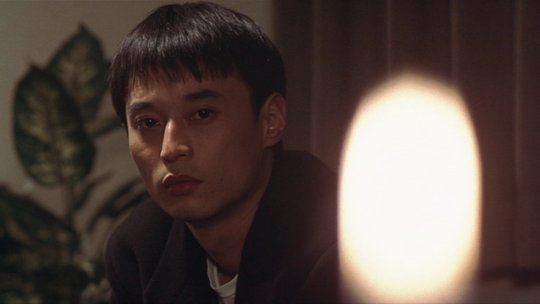
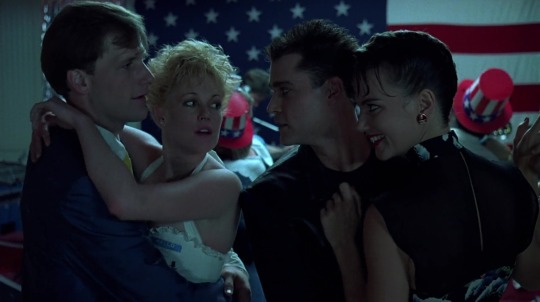

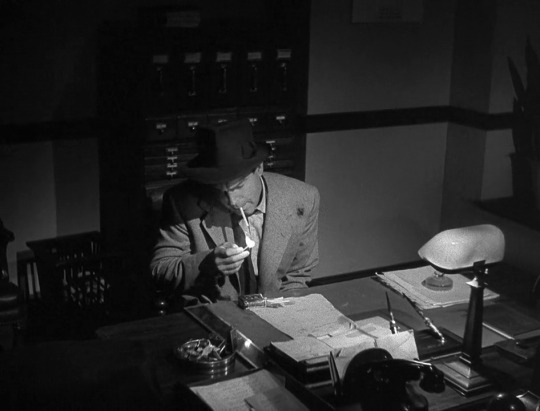
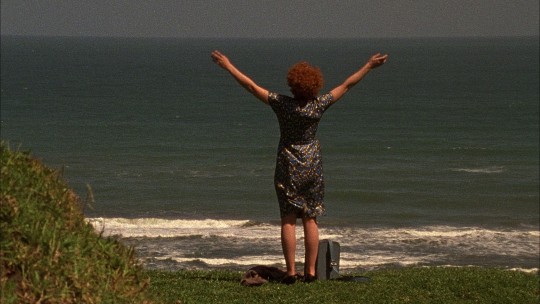
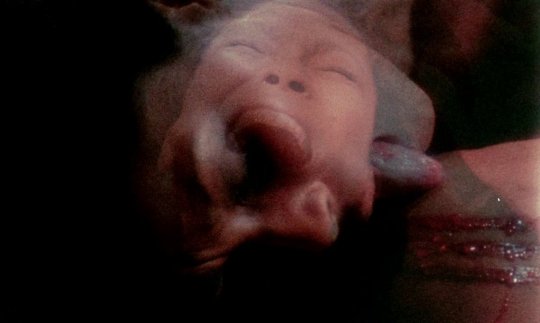
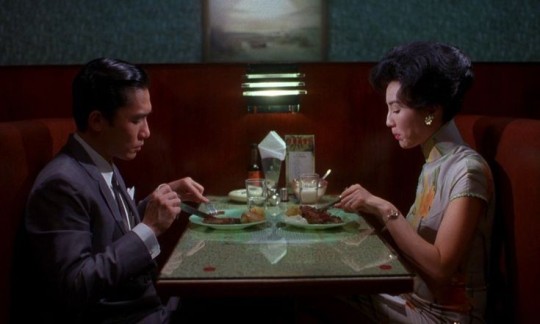

1. AI: Artificial Intelligence (2001) (dir. Steven Spielberg)
2. Wheel of Fortune and Fantasy (2021) (dir. Ryusuke Hamaguchi)
3. Cure (1997) (dir. Kiyoshi Kurosawa)
4. Something Wild (1986) (dir. Jonathan Demme)
5. Sweet Charity (1969) (dir. Bob Fosse)
6. Double Indemnity (1944) (dir. Billy Wilder)
7. An Angel at My Table (1990) (dir. Jane Campion)
8. Ganja and Hess (1973) (dir. Bill Gunn)
9. In the Mood for Love (2000) (dir. Wong Kar-wai)
10. The Lady Eve (1941) (dir. Preston Sturges)
11. Barton Fink (1991) (dir. Joel & Ethan Coen)
12. The Wedding Banquet (1993) (dir. Ang Lee)
13. Watermelon Man (1970) (dir. Melvin Van Peebles)
14. Smooth Talk (1985) (dir. Joyce Chopra)
15. Exotica (1994) (dir. Atom Egoyan)
16. Drive My Car (2021) (dir. Ryusuke Hamaguchi)
17. Paths of Glory (1957) (dir. Stanley Kubrick)
18. Smiley Face (2007) (dir. Gregg Araki)
19. Heat (1995) (dir. Michael Mann)
20. Symbiopsychotaxiplasm: Take One (1968) (dir. William Greaves)
21. Fox and His Friends (1974) (dir. Rainer Werner Fassbinder)
22. Bright Star (2009) (dir. Jane Campion)
23. Tape (2001) (dir. Richard Linklater)
24. Magick Lantern Cycle (1948-1981) (dir. Kenneth Anger)
25. La cérémonie (1995) (dir. Claude Chabrol)
26. Aliens (1986) (dir. James Cameron)
27. Better Than Chocolate (1999) (dir. Anne Wheeler)
28. The Hudsucker Proxy (1994) (dir. Joel & Ethan Coen)
29. Häxän (1922) (dir. Benjamin Christensen)
30. Burn After Reading (2008) (dir. Joel & Ethan Coen)
31. The Story of a Three-Day Pass (1967) (dir. Melvin Van Peebles)
32. 2046 (2004) (dir. Wong Kar-wai)
33. Sympathy for Mr. Vengeance (2002) (dir. Park Chan-wook)
34. The Last Detail (1973) (dir. Hal Ashby)
35. Charade (1963) (dir. Stanley Donen)
36. Far from Heaven (2002) (dir. Todd Haynes)
37. Broadcast News (1987) (dir. James L. Brooks)
38. The Man Who Wasn't There (2001) (dir. Joel & Ethan Coen)
39. One Week (1920) (dir. Buster Keaton)
40. The Learning Tree (1969) (dir. Gordon Parks)
41. Clue (1985) (dir. Jonathan Lynn)
42. A Simple Plan (1998) (dir. Sam Raimi)
43. Poison (1991) (dir. Todd Haynes)
44. Fishmans (2021) (dir. Yuki Teshima)
45. Masculin Féminin (1965) (dir. Jean-Luc Godard)
46. Ghost Dog: Way of the Samurai (1999) (dir. Jim Jarmusch)
47. Lenny (1974) (dir. Bob Fosse)
48. Kuroneko (1968) (dir. Kaneto Shindo)
49. Meet Me in St. Louis (1944) (dir. Vincente Minnelli)
50. Gentlemen Prefer Blondes (1952) (dir. Howard Hawks)
#steven spielberg#ryusuke hamaguchi#wheel of fortune and fantasy#ai artificial intelligence#cure#kiyoshi kurosawa#something wild#jonathan demme#sweet charity#bob fosse#double indemnity#billy wilder#an angel at my table#jane campion#ganja and hess#bill gunn#in the mood for love#wong kar wai#the lady eve#preston sturges#barton fink#coen brothers#the wedding banquet#ang lee#watermelon man#melvin van peebles#smooth talk#joyce chopra
29 notes
·
View notes
Text
Oppenheimer

From his beginnings in the 1920s as a genius student galvanized by the prospect of making breakthroughs in quantum mechanics, to teaching and collaborating with other prodigious minds at Berkeley, to embracing the communist purposes that would later invigorate him to develop the bomb ahead of the Nazis, Nolan creates magic The dialogues and debates bristle with a kinetic sort of energy that is tangible, and keeping me invested in all the dizzying equations and exposition.
With help from composer Ludwig Göransson’s anxiety-inducing score, cinematographer Hoyte van Hoytema’s brilliance, and editor Jennifer Lame’s frenetic frames, Nolan takes you deep into the mind and all its tragic machinations of a protagonist sickened by his eminence and tortured by his futile attempt to advocate against further nuclear development.
Murphy captures Oppenheimer’s innermost turmoil and external arrogance with some amount of indecent ease; we never quite understand him fully, but that’s precisely what I think Nolan wants.
It is Robert Downey Jr., though, who appears as the film’s leading game-changer, and I believe delivers the finest performance of his career as Atomic Energy Commission chair Lewis Strauss, who makes it his mission to pull apart Oppenheimer’s credibility and service to the United States government.
The Strauss-Oppenheimer rivalry, fuelled by jealousy and humiliation, spirals into a full-blown revenge saga in the second half, primarily taking shape inside claustrophobic council rooms populated with suits. Oppenheimer was adamant to change his legacy which I believe he did.
Nolan brings an impressive degree of historical accuracy to the film without resorting to a slavish recitation of facts, seeding it with oodles of throwaway details and characters as ornamental flourishes.
As being a physics nerd I loved to point out all the physicists there was Richard Feynman, Werner Heisenberg, Niels Bohr, Leo Szilard, Enrico Fermi, Luis Alvarez, Hans Bethe, Vannevar Bush, Kenneth Bainbridge, and the infamous Klaus Fuchs.
The explosion being the centre of the film didn't determine its worth I loved the drama after which became far more spectacular. The gym scene after the explosions in Japan where Oppenheimer gave a speech is one of the most hauntingly beautiful scenes ever.
The way he kept trying to give the speech while the reality was breaking down around him felt just like a waking nightmare.
And the last scene between Einstein and Oppenheimer is so powerful. "I believe we did" I had goosebumps.
The cinematography and the perfect direction of Nolan are pure magnificence. This movie was made for a nerd like me and I love it to the core. Every actor played their part so well. This movie just doesn't dips you can't miss a scene. Even though it was a 3-hour movie I wanted more.
I was asked during a trivia contest what was Trinity project I had an idea about the Manhattan Project but not it's part and thus it began my new short-lived obsession with the Manhattan Project and Oppenheimer and Nolan brought it down to perfection.
It lived up to his hype.
I read reviews where they said it's more like 3 hour dialogue combining history, physics, philosophy and more. I am like stop drilling man you hit oil way before.
(^3^)
#thoughts#opinion#discussion#movies#movie review#christopher nolan#oppenheimer#oppenheimer movie#culture#pop culture#cinema#cinephile#cinemetography#history#historical#physics#atomic bomb#nerd
3 notes
·
View notes
Text
Opgevoerde surveillances werpen vruchten af; autoriteiten constateren 'bepaalde rust'
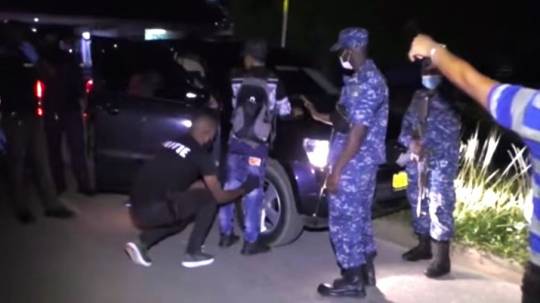
Er zou sprake zijn van een 'bepaalde rust' als het gaat over de criminaliteit. Dat kreeg president Chandrikapersad Santokhi gerapporteerd van de directeur Operaties en tevens waarnemend korpschef van het Korps Politie Suriname, Melvin Pinas.
Uit recente analyses is geconstateerd dat er drie tot vier dadergroepen actief zijn in Suriname. De politieorganisatie richt zich op de opsporing en aanhoudingen van deze verdachten. Daarnaast werkt het KPS aan een ontmoedigingsbeleid door drugshaarden en groepen hangjongeren te ontmantelen. Ook worden er in het binnenland geregeld oriëntaties gepleegd om de situatie aldaar in de gaten te houden. Dit blijkt uit de rapportage van de Nationale Veiligheidscommissie die op 17 mei aan de president gepresenteerd is. Er zijn statistieken van de afgelopen twee weken gepresenteerd en er is ook gesproken over de verrichtingen in het kader van operatie 'Zero Tolerance'.
Minister Kenneth Amoksi van Justitie en Politie zegt dat door de acties die de laatste weken zijn uitgevoerd, zoals het plaatsen van roadblocks, de aanhouding van personen en de inbeslagname van wapens, het de goede kant op gaat met de veiligheidssituatie in Suriname. De bewindsman hoopt dat de veiligheidsinstanties dit tempo erin blijven houden. “De instructies zijn ook gegeven om op deze manier door te gaan”, merkt de minister op. Het ministerie van Justitie en Politie zorgt in samenwerking met het ministerie van Financiën en Planning ervoor dat de middelen hiervoor beschikbaar zijn. De minister spreekt de hoop uit en rekent op het Korps Politie Suriname (KPS) en andere veiligheidsdiensten dat ze de situatie op deze manier blijven aanpakken en monitoren.
Rishi Akkal, directeur Beleidsvoorbereiding en Beheer van het KPS, presenteerde de statistieken van 1 april 2024 tot heden. Sinds de start van Operatie Zero Tolerance zijn er 227 roadblocks gehouden, waarbij er in totaal dertigduizend boetes zijn uitgeschreven. Twee weken geleden waren er volgens Akkal totaal 153 aanhoudingen gepleegd, een aantal dat is opgelopen naar 308, waarvan 144 personen zijn heengezonden.
De analyse van het eerste kwartaal dit jaar vergeleken met dezelfde periode vorig jaar wijst uit dat er een daling van ruim tien procent is in gekwalificeerde diefstallen, terwijl er bij berovingen een stijging van 6,8 procent is genoteerd. “Het aantal levensberovingen en suïcide gevallen daalt, terwijl het aantal verkeersdoden stijgt. Er zijn aanhoudingen geweest met inbeslagnames van vuurwapens en drugs zoals marihuana, hash, sukru en onbekende tabletten. Al met al is het KPS blij met deze geboekte resultaten”, zegt Akkal.
Bevelhebber van het Nationaal Leger Werner Kioe A Sen waardeert de aanpak en samenwerking met het KPS in operatie Zero Tolerance. Er worden momenteel zeven legervoertuigen ingezet om de zichtbaarheid van de politie en militairen bij surveillances te vergroten. Daarnaast voert het leger haar reguliere operaties uit en zijn er twee operaties in voorbereiding, namelijk voor het Tibiti-gebied en voor de kustvlakte.
President Santokhi merkt op dat de impact van de operatie zichtbaar is aan het aantal gekwalificeerde misdrijven. Hoewel hij nog geen definitieve conclusie kan trekken over de resultaten van de acties, suggereert hij dat de criminele wereld afwachtend is. De president drong er bij de veiligheidsdiensten op aan om hun inspanningen te intensiveren. Gezien de huidige stand van zaken stelt het staatshoofd voor om meer dadergericht te werk te gaan. Hij rekent erop dat door gebruik te maken van inlichtingen en opsporingsmethoden alle daders opgepakt zullen worden.
Read the full article
0 notes
Video
vimeo
Gays/Gaze from Ben Coldwell on Vimeo.
With “Radical Elsewhere” ([in]Transition 9.3, 2022) Philip Brubaker responds to Johannes Binotto’s remarkable memory of catching something onscreen as a child that unleashes a terrifying sexual feeling. The arousing but disturbing, isolating but personal film Binotto has seen on television remains unnamed and trapped in that night before sex or media could have made much sense. Binotto refers to a bit of Gilles Deleuze on the offscreen, which Braubaker represents as a glowing fuchsia frame where “things are not shown but felt by the viewer” in part through “gay sex scenes because I thought they were probably too risqué to be filmed with an explicit approach.” Of course, television censors images to protect the child, especially the lonely queer child of the night, from feelings too dirty or lustful. But is explicit gay sex really “too risqué to be filmed”? I think not, so I took my eyedrop tool to recreate Brubaker’s border of the unseen and crossed.
Certainly some landscapes always leave the spectacle of gay sex offscreen: classical Hollywood, American television before premium cable, anything below the MPA’s R rating, and the clips in Brubaker’s piece. The problem with these prohibitions, as D. A. Miller reminds us in “Anal Rope,” is that gay sex can only haunt the shadowy realm of connotation, “the dominant signifying practice of homophobia.” Miller argues that the camera in Hitchcock’s Rope (1948)—an experiment in the then-impossible single shot feature film—has an “extreme unwillingness to shut its eye.” When Hitchcock must cut, he schematically ‘hides’ half his cuts through blackouts over “a man’s backside.” Half minus one, in truth, as the last cut in the film hides instead the corpse that proves the central homosexuals have killed and fucked (when really, glancing through history, we should say homosexuals have been killed and fucked). For Miller, the final cut distills Rope’s fear of castration and, ingeniously, the “oddly compatible fear of the negation of castration.” “Gays/Gays” breaks open this last cut with over a hundred years of media that refuses to fear the negation of castration.
My centerpiece is built from castrated imaged—a controlled constellation of moving penises severed from context (among them, in excess, are some literal castrations). Images of full frontal male nudity serve as my synecdoche for gay sex that, as Brubaker and Miller demonstrate, is too often only implied or softened. Instead, this is the ‘rare’ media that dares depict a “radical elsewhere” as right here and not so radical. Beyond gay sex, these ephemeral bursts are evidence of desire for men with penises and the many, sometimes violent, responses to that desire. The examples share their potent motif across terrains of time, space, intent, and use. My rejection of hierarchies of taste and genre hopes to reclaim and realign these texts, to repair the damage of their accrued paranoia and enliven their cumulative potentials.
The video is inflected by methods and theories from media studies, but I leave it to the viewer to decide if, and why, they care. Can a man’s penis, not lacking but stubbornly present, be a fetish object? Does a stream of nude men flow against the torrent of the male gaze toward a man’s own to-be-looked-at-ness? Might there be an inverted “frenzy of the visible” that refines the boundaries of explicit sexual imagery, imagery that is more interested in proliferating sex and its implications rather than encoding the binaries attached to gender? Is there something queer—including but surpassing content and reception—in the form and temporality of such images, here severed and stitched to magnify their assaultive, affective extremes?
[Partial References: Roland Barthes; Jacques Lacan; Ingmar Bergman; Andy Warhol; Kenneth Anger; Alfred Hitchcock; Jean Genet; Jack Smith; Stan Brakhage; Wakefield Poole; Derek Jarman; Bill Gunn; Pier Paolo Pasolini; Rainer Werner Fassbinder; Ken Russell; Todd Haynes; Stanley Kubrick; Paul Schrader; Jane Campion; Peter Greenaway; Ming-Liang Tsai; Pedro Almodóvar; Brandon Cronenberg; Eliza Hittman; Gregg Araki; Bruce LaBruce; Ang Lee; Alfonso Cuarón; Sadie Benning; John Cameron Mitchell; Eli Roth; David Cronenberg; Jonathan Glazer; Danny Boyle; Steve McQueen; Larry Clark; Ari Aster; Andrew Haigh; Johanna Hogg; Jeff Tremaine; Paul Thomas Anderson; Steven Soderbergh; Sean Baker; Gaspar Noé
The White Lotus; The Wire; Sense8; Atlanta; The Leftovers; We Are Who We Are; High Maintenance; Looking; Girls; Sex Education; The Deuce; The Righteous Gemstones; Game of Thrones; Chernobyl; Yellowjackets; Westworld; True Blood; Succession; Poker Face; Euphoria]
0 notes
Text

FILM LOG || February 2024
★★★★★ - Holy Mountain, Alejandro Jodorowsky (1973)
★★★★★ - The Garden, Derek Jarmam (1990)
★★★★☆ - Thundercrack!, Curt McDowell (1975)
★★★★☆ - Taxi zum Klo, Frank Ripploh (1980)
★★★★☆ - Desperate Living, John Waters (1977)
★★★★☆ - Fox and His Friends, Rainer Werner Fassbinder (1975)
★★★★☆ - Confessions, Curt McDowell (1972)
★★★★☆ - Cabaret, Bob Fosse (1972)
★★★★☆ - Mysterious Skin, Gregg Araki (2004)
★★★★☆ - Crimewave, John Paizs (1985)
★★★★☆ - Please, Baby Please, Amanda Kramer (2022)
★★★★☆ - Bottoms, Emma Seligman (2023)
★★★★☆ - Caravaggio, Derek Jarman (1986)
★★★☆☆ - Loads, Curt McDowell (1980)
★★★☆☆ - Sparkle's Tavern, Curt McDowell (1985)
★★★☆☆ - What's Love, Bill Cable (1987)
★★★☆☆ - A Coupla White Faggots, Michael Auder (1981)
★★★☆☆ - Mucho Ado About Nothing, Kenneth Branagh (1993)
★★★☆☆ - They Live, John Carpenter (1988)
★★★☆☆ - Eastern Promises, David Cronenberg (2007)
★★★☆☆ - My Best Friend Is A Vampire, Jimmy Huston (1987)
★★★☆☆ - The Fluffer, Richard Glatzer (2001)
★★☆☆☆ - Frisk, Todd Verow (1995)
★★☆☆☆ - Fun, Rafal Zielinski (1994)
★★☆☆☆ - Drive, He Said, Jack Nicholson (1971)
★★☆☆☆ - Desperate Teenage Love Dolls, David Markey (1984)
★★☆☆☆ - The Wounded Man, Patrice Chereau (1983)
★★☆☆☆ - Blaze Starr Goes Nudist, Doris Wishman (1962)
★★☆☆☆ - Mod Fuck Explosion, Jon Moritsugu (1994)
★★☆☆☆ - Head On, Ana Kokkinos (1998)
★★☆☆☆ - O Fantasma, Joao Pedro Rodrigues (2000)
0 notes
Text
On this day in Wikipedia: Friday, 16th February
Welcome, nuqneH, merħba, selamat datang 🤗
What does @Wikipedia say about 16th February through the years 🏛️📜🗓️?

16th February 2021 🗓️ : Event - Kherrata
Five thousand people gathered in the town of Kherrata, Bejaia Province to mark the two year anniversary of the Hirak protest movement. Demonstrations had been suspended because of the COVID-19 pandemic in Algeria.
"Kherrata is a commune in northern Algeria in the Béjaïa Province...."

Image licensed under CC BY-SA 3.0? by Yelles
16th February 2019 🗓️ : Death - Bruno Ganz
Bruno Ganz, Swiss actor (b. 1941)
"Bruno Ganz (German: [ˈbruːno ˈɡant͡s] ; 22 March 1941 – 16 February 2019) was a Swiss actor whose career in German stage, television and film productions spanned nearly 60 years. He was known for his collaborations with the directors Werner Herzog, Éric Rohmer, Francis Ford Coppola, and Wim Wenders,..."
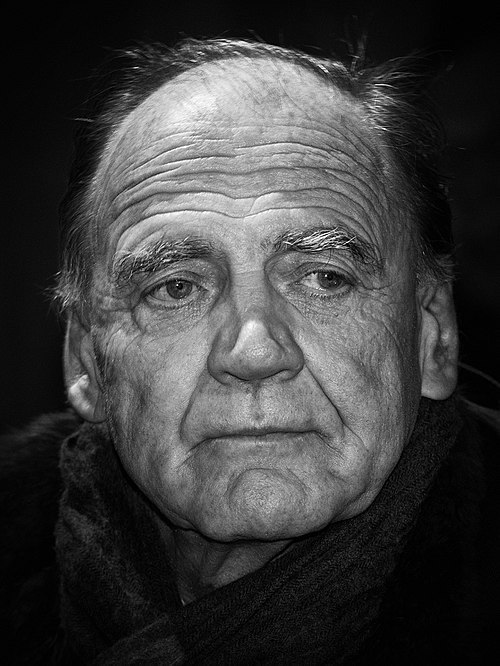
Image licensed under CC BY-SA 3.0? by Loui der Colli
16th February 2014 🗓️ : Death - Ken Farragut
Ken Farragut, American football player (b. 1928)
"Kenneth David Farragut, Jr. (December 23, 1928 – February 16, 2014) was an American football center. He played professionally in the National Football League (NFL) for the Philadelphia Eagles...."

Image by Bowman
16th February 1974 🗓️ : Birth - José Dominguez
José Dominguez, Portuguese footballer and manager
"José Manuel Martins Dominguez (born 16 February 1974) is a Portuguese former footballer who played as a winger, currently assistant manager of Cypriot First Division club APOEL FC. A diminutive player with above-average technical skills and speed, he started playing professional football not in his..."
16th February 1923 🗓️ : Event - Howard Carter
Howard Carter unseals the burial chamber of Pharaoh Tutankhamun.
"Howard Carter (9 May 1874 – 2 March 1939) was a British archaeologist and Egyptologist who discovered the intact tomb of the 18th Dynasty Pharaoh Tutankhamun in November 1922, the best-preserved pharaonic tomb ever found in the Valley of the Kings...."

Image by Chicago Daily News, Inc., photographer
16th February 1824 🗓️ : Birth - Peter Kosler
Peter Kosler, Slovenian lawyer, geographer, and cartographer (d. 1879)
"Peter Kosler or Kozler (16 February 1824 – 16 April 1879) was an Austrian-Slovene lawyer, geographer, cartographer, activist, and businessman. He was of ethnic German origin, but also identified with Slovene culture and advocated the peaceful coexistence of the Slovene and German cultures in..."
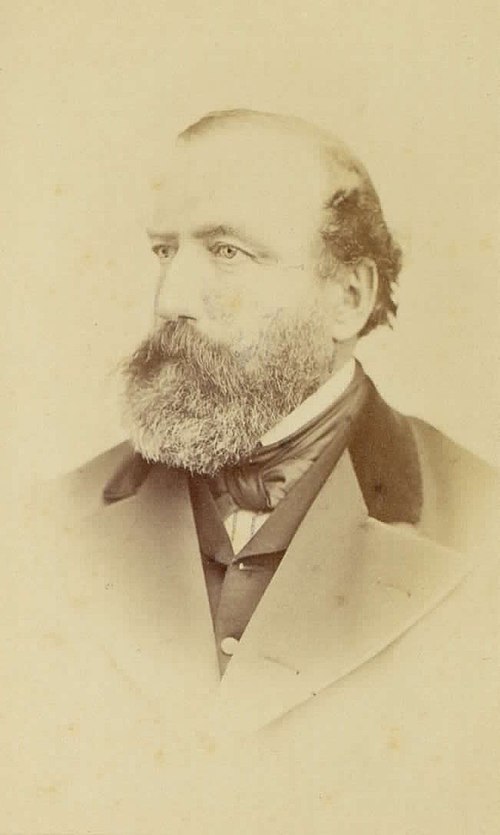
Image by Ludwig Angerer
16th February 🗓️ : Holiday - Elizabeth Peratrovich Day (Alaska)
"Elizabeth Peratrovich (née Elizabeth Jean Wanamaker; Tlingit: Ḵaax̲gal.aat [qʰaχ.ɡʌɬ.ʔatʰ]; July 4, 1911 – December 1, 1958) was an American civil rights activist, Grand President of the Alaska Native Sisterhood, and member of the Tlingit nation who worked for equality on behalf of Alaska Natives...."
0 notes
Text
La grande attrice tedesca, interprete di film quali Il fidanzato, l’attrice e il ruffiano di Jean-Marie Straub, Effi Briest, Il matrimonio di Maria Braun di Rainer Werner Fassbinder, Falso movimento di Wim Wenders, Un amore in Germania di Andrej Wajda, Storia di Piera di Marco Ferreri, La nina dei tuoi sogni di Fernando Trueba, Terra promessa di Amos Gitai, Ai confini del paradiso di Fatih Akin e molti altri, spegne ottanta candeline.
Nata a Konigshutte (l’attuale Katowice, nella Polonia all’epoca invasa dai tedeschi), dopo la giovinezza trascorsa a Monaco di Baviera, intraprende studi filologici. L’incontro con il regista Rainer Werner Fassbinder (1945-1982) fa maturare la sua passione per il teatro, che la porterà a calcare i palcoscenici per molti anni.
Bionda, occhi azzurri, volto dai lineamenti irregolari e fascino magnetico ed enigmatico, esordisce al cinema alla fine degli anni Sessanta nell’anticonvenzionale Il fidanzato, l’attrice e il ruffiano (1968) di Jean-Marie Straub.
Tuttavia, sarà nuovamente Fassbinder a condurla verso la maturità artistica riservandole ruoli - da protagonista e non - di notevole spessore, da Il fabbricante di gattini (1969) e Attenzione alla puttana santa (1971) al letterario Effi Briest (1974) e al gelido Il matrimonio di Maria Braun (1979).
Grintosa, caparbia, rappresentante di uno stile recitativo rigoroso e senza sbrodolature, dopo una parentesi televisiva di grande successo - Berlin Alexanderplatz (1980) -, anch’esso diretto da R. W. Fassbinder, nelle pellicole seguenti viene diretta da altri registi, dando vita a personaggi intensi, contraddistinti da quella stessa anticonvenzionalità che le appartiene anche nella vita fuori dai set.
Già giovane compagna di vita nel letterario Falso movimento (1974) di Wim Wenders, è poi un’adultera circondata dai sospetti nel cupo Un amore in Germania (1983) di Andrej Wajda, una madre ninfomane nell’onirico Storia di Piera (1983) di Marco Ferreri, tratto dal libro omonimo di Dacia Maraini, una rigida Magda Goebbels nel suggestivo La niña dei tuoi sogni (1998) di Fernando Trueba, un’ambigua tenutaria di bordello in Terra promessa (2004) di Amos Gitai.
In Ai confini del paradiso (2007) di Fatih Akin, è l’anziana Lotte, la quale, in seguito alla perdita della figlia, rimette in discussione tutte le sue convinzioni sulla vita e sul mondo.
Fra gli altri film ricordiamo Scene di caccia in bassa Baviera (1969) di Peter Fleischmann, L’amore è più freddo della morte (1969), Dei della peste (1970), Perché il signor R. è colto da follia improvvisa? (1970), Il mercante delle quattro stagioni (1972), Le lacrime amare di Petra von Kant (1972), La terza generazione (1979), Lili Marleen (1981), tutti di Rainer Werner Fassbinder, L’inganno (1981) di Volker Schlondorff, Il mondo nuovo (1982) di Ettore Scola, Passion (1982) di Jean-Luc Godard, Antonieta (1982) di Carlos Saura, Lucida follia (1983) di Margarethe von Trotta, Il futuro è donna (1984) di Marco Ferreri, L’altro delitto (1991) di Kenneth Branagh, Golem - Lo spirito dell’esilio (1992) di Amos Gitai, Cento e una notte (1995) di Agnès Varda, Faust (2011) di Alexandr Sokurov, Avanti (2012) di Emmanuelle Antille, Vijay - Il mio amico indiano (2013) di Sam Garbarski, The Quiet Roar (2014) di Henrik Hellstrom.
In epoche più recenti è apparsa in film come Unless (2016) di Alan Gilsenan, Fortunata (2017) di Sergio Castellitto, La Prière (2018) di Cédric Kahn, Il mistero di Henri Pick (2019) di Rémi Besançon, tratto dal romanzo omonimo di David Foenkinos, Tous s’est bien passé (2021) di François Ozon, con Charlotte Rampling, Peter von Kant (2022) di F. Ozon, Povere creature! (2023) di Yorgos Lanthimos.
Molto attiva anche in televisione, è apparsa in numerosi film tv - Die Revolte (1969) di Reinhard Hauff, Baal - (1970) di Volker Schlondorff, Il caffè (1970), Il viaggio di Niklashauser (1970), Rio das Mortes (1971), Pionieri a Ingolstadt (1971), La libertà di Brema (1972) e Selvaggina di passo (1972),
tutti di Rainer Werner Fassbibinder, Jacob von Guntern (1971) di Peter Lilienthal, Die Ahnfrau – Oratorium nach Franz Grillparzer (1971) di Peer Raben, Haus am Meer (1973) di Reinhard Hauff, Der Katzensteg (1975) di Peter Meincke, Intermezzo fur funf Hande (1977) di Ludwig Cremer, L’Aide-mémoir (1984) di Pierre Boutron, Barnum - Il re del circo (1986) di Lee Philps, in cui recita con il grande Burt Lancaster a fine carriera, Il veneziano, vita e amori di Giacomo Casanova (1987) di Simon Langton, El verano de la senora Forbes - (1989), Le bel horizon (1994) di Charles L. Bitsch, Absolitude (2001) di Hiner Saleem, Das Unreine mal - (2006) di Thomas Freundner, Clara, une passion française (2009) di Sébastien Grall - ed in alcuni episodi di serie e miniserie - Die Damonen (1977), Il grande palpito (1979) , Pietro il Grande (1986), Me alquilo para sonar (1992), Associations de bienfaiteurs (1995), Angelo nero (1998).
0 notes
Text
'Oppenheimer is a classic Christopher Nolan movie. Its subject matter is on the grand scale, concerning nothing less than the end of the world. It works on many different levels, telling the story of the rise and fall of one of the 20th century’s most famous scientists. It is visually inventive. It plays with time and does not contain a linear narrative. And, like most Nolan films, it is far too long.
Nolan wrote the screenplay based on a biography of J Robert Oppenheimer, American Prometheus, by Kai Bird and Martin J Sherwin. The book had been offered to various directors and producers, including Sam Mendes (director of American Beauty, Jarhead, and the James Bond movies Skyfall and Spectre) before landing on Nolan’s desk. Cillian Murphy was brought on board, and gives a superlative performance as the gaunt, sometimes jolly, and sometimes haunted scientist with a tortured soul. Other stars soon followed. The film was shot partly in IMAX and partly in 65mm widescreen format.
The play with time in Oppenheimer is a little less complex than in some of Nolan’s films, such as Inception (2010) or Tenet (2020). The film begins during Oppenheimer’s 1954 appeal hearing to renew his security clearance in the US atomic programme. Alongside this are the Senate hearings to confirm Lewis Strauss, the chairman of the US Atomic Energy Commission, as Cabinet Minister for Commerce. Initially Strauss had been a friend, but he had become a bitter enemy of Oppenheimer. Most of the film is shot in colour, intended to show the story from Oppenheimer’s perspective. Black-and-white scenes of the Senate hearing are supposed to be more objective, as Oppenheimer was not present.
The spine of the film, told in an extended set of flashbacks is, however, Oppenheimer’s story – starting at Cambridge University’s Cavendish Laboratory, where he studied as a postgraduate from 1924 to 1926. Here, he hated his tutor, Professor Patrick Blackett (played by James D’Arcy), but first meets the great Danish physicist Niels Bohr (Kenneth Branagh). He then progresses through the universities of Leiden and Göttingen, where he meets Werner Heisenberg (Matthias Schweighöfer), the German atomic scientist. Homesick, he returns to the United States in 1927 to take up a position to teach Quantum Mechanics at Berkeley, California. Each of these phases introduces him – and us – to leading physicists of the day.
At Berkeley, his professional standing and reputation grow. He has an affair with Jean Tatlock, a Communist (movingly played by Florence Pugh). It proves a difficult relationship, and Oppenheimer eventually rejects her and her Communist theories, and marries Kitty (a brilliantly determined performance by Emily Blunt), who has also given up Communism but struggles with a drink problem.
When the US joins the war, President Roosevelt is persuaded to support a programme to develop an atom bomb, as it is believed the Germans under Heisenberg are developing such a weapon. The programme is run by the army, and in September 1942 Brigadier Leslie Groves (a superbly bullish performance from Matt Damon) is put in charge. The Manhattan Project, as it becomes, is a vast programme involving 120,000 people.
Groves recruits Oppenheimer as director of the key laboratory where the bomb will be built, knowing that he is ‘a dilettante, a womaniser, and a suspected Communist’. The other leading scientists are required to stay at their jobs. Only Oppenheimer, Groves believes, has the knowledge and drive to run the new laboratory.
Oppenheimer chooses Los Alamos – a remote spot in beautiful and wild New Mexico to which he had retreated many times in his life – to site his new laboratory. Here a new town is quickly built. The central drama of the film takes place at Los Alamos, as a group of scientists including Edward Teller (Benny Safdie), Isidor Rabi (David Krumholtz), and many others live and argue between themselves in the race to build an atomic bomb before the Nazis.
Father of the bomb
In the spring of 1945, the Germans surrender, and many scientists believe their work can end. But the Japanese are still to be defeated and it is decided to go ahead and test the bomb. The run-up to the first ever atomic-bomb test, known as Trinity, is really the climax of the film. The bomb has to be tested quickly, before the Potsdam Conference ends, so that Truman can tell Stalin of the project.
Much tension is added by the fact that one set of calculations suggests that the bomb might set off an atomic chain-reaction that would be unstoppable and would destroy the world. When Groves asks Oppenheimer what the chances of this are, he is told after some hesitation: ‘Near zero.’ ‘I would have preferred zero,’ replies Groves. But still they go ahead with the test. The moments running up to the trial explosion on 16 July make for a superb piece of intensely dramatic cinema. This sequence alone justifies watching the whole film.
After this, two bombs are taken away by the army for dropping, first over Hiroshima and then Nagasaki. Oppenheimer is at first pleased that the bombs ignite successfully and bring the war to an end, saving the lives of hundreds of thousands of Americans who would doubtless have died in the event of an invasion of the Japanese home islands.
But slowly, as the death toll and the long-term suffering from radiation sickness become clear, Oppenheimer is appalled by what he has created. Time magazine calls him ‘The Father of the Atom Bomb’. At this point, he is reputed to have quoted a verse from the Sanskrit Bhagavad Gita: ‘Now I am become Death, the destroyer of worlds’. He imagines the bright flash of the bomb exploding and visualises those around him suffering from burns and radiation sickness. At one point, Oppenheimer steps into a burned corpse, a sequence inspired by a 1966 sculpture by Colin Self at the Imperial War Museum.The rest of the film deals with Oppenheimer’s post-war career. Lewis Strauss offers him the directorship of the Institute for Advanced Study at Princeton. But, after a close friendship, they fall out. Strauss wants to press ahead with a full-on American nuclear programme. Oppenheimer wants to create some sort of international authority to control the spread of nuclear weapons in a futile attempt to prevent a nuclear arms-race. He argues his case to President Truman (Gary Oldman), who dismisses him as a ‘cry baby’.
The film goes on to tell the story of the hounding of Oppenheimer as the ‘Red Scare’ (fanned by Senator Joseph McCarthy) takes hold in early 1950s America. His Communist associations are revived to taunt him. And it is revealed that security at Los Alamos was not as perfect as everyone had imagined. A scientist from Britain, Klaus Fuchs (a bit part in the film played by Christopher Denham), had leaked the principles of nuclear fission to the Soviets. As a consequence, the Soviets catch up in record time and produce their own bomb by 1949. Making himself even more unpopular, Oppenheimer opposes Teller’s attempt to develop the hydrogen bomb and a new generation of massively more lethal thermonuclear weapons.
The over-long last part of the film shows Lewis Strauss attempting to oust Oppenheimer from a position of influence in the US by withdrawing his security clearance. Oppenheimer knows this will end his career, and determinedly fights his corner. Some old colleagues, like Groves, affirm his loyalty; others, like Teller, now running the thermonuclear programme, denounce him. Albert Einstein (Tom Conti) suggests what he has unleashed will one day destroy the world.
Oppenheimer is fast-paced and beautifully filmed. At times it is challenging to follow the large ensemble of scientists who argue their way through the Manhattan Project. But it is without doubt a great film. It goes into Oppenheimer’s mind as he imagines planets disappearing into black holes. It shows his horror at the terror he has created following the explosion of the bomb. It deals with big subjects in a powerful way by focusing on the ambitions and fears of a central character who is superbly depicted. And, in the run-up to the Trinity test, it contains one of the outstanding pieces of recent cinema. Don’t miss it.
#Oppenheimer#Christopher Nolan#Albert Einstein#Tom Conti#Leslie Groves#Matt Damon#The Manhattan Project#Cillian Murphy#IMAX#American Prometheus#Kai Bird#Martin J. Sherwin#Inception 4#Tenet#Patrick Blackett#James D'Arcy#Werner Heisenberg#Matthias Schweighöfer#Niels Bohr#Kenneth Branagh#Jean Tatlock#Florence Pugh#Kitty#Emily Blunt#Los Alamos#Edward Teller#Benny Safdie#Isidor Rabi#David Krumholtz#Bhagavad Gita
0 notes
Note
What are some texts that aren't impossible to find that explore the basics of, or a wide scope of, improvised/wilderness/austere medicine?
My absolute favorite is Improvised Medicine by Kenneth V. Iserson. (available for probably not super legal download here- but it worked for me).
It's now in it's second edition. It's expensive if you do want to buy it (I found it between $48-$100), and it's designed for people who are already healthcare providers, but it's not afraid to be like "You have one ventilator and 4 people that need vents? Here's how to make that work." He goes way outside what everyone in the medical world is comfortable with, and even says things like "well I wouldn't do this, but I don't know your situation, so maybe try x/y/z". So I really like this book.
My other favorite is Where There Is No Doctor by David Werner. (available free here).
This one is designed for people who are not medical professionals, but who are living or working in extremely resource-poor environments, where doctors and healthcare facilities may be totally unavailable, or so far away it would take incredible effort to get someone there.
Another one I would check out is Wilderness and Remote First Aid Emergency Reference Guide by the American Red Cross and Boy Scouts of America (available free here).
This one is good if you just want kind of a bare-bones primer of the most common illnesses and injuries occurring in the backcountry, as well as a framework for assessment, treatment, and decision making. As someone who has taught from this curriculum, I like it better than most of the other similar ones.
If you like that and want something more in-depth, I recommend Expedition and Wilderness Medicine by Bledsoe, Manyak & Townes. If you want something cheaper, I recommend the Oxford Handbook of Expedition and Wilderness Medicine by Johnson, Anderson, & Dallimore.
Auerbach's Wilderness Medicine by Paul Auerbach is a classic and in it's 7th edition. If you're interested in specifically disaster med, I'd look into Ciottone's Disaster Medicine by Gregory Ciottone.
202 notes
·
View notes
Text
Filmkritik OPPENHEIMER!
Wenn ich Fahrrad fahre, und ausversehen die Schnecke mitnehme, kann ich dass mit meinem Gewissen vereinigen, außer ich liebe Tiere über alles. Doch wie muss es sein, mehr Leute als Jack the Ripper getöte zu haben, und das schneller als ein Fingerschnips?
Cillian Murphy, ist ein Irischer Schauspieler, den ich persönlich erst mit diesem Film kennlernte, aber die meisten durch die Serie Picky Blinders, sein Gesicht kennenlernten. Nun schlüpft er wieder in die Rolle eines Mörders, und hat dabei noch mehr Menschen auf dem Gewissen. Zumindest seine Rolle.
Der Film Oppenheimer, wurde von keinem anderen als der Hollywood Legende Christopher Nolan gemacht. Ich persönlich feierte ihn nur wegen Interstellar und Dunkirk, doch diese Liste erweitert sich nun. Der ganze Film ohne Spezialeffekte, die Schauspieler alle wieder zu erkennen, und in das Leben eines Mannes einzusteigen, der so intelligent war, war schon ein Erlebniss. Ich meine Tony Stark Darsteller Robert Downy Jr., als Gegner von Cillian Murphy, Matt Damon, als General und Kenneth Branagh mal nicht als Dedektiv zu sehen, war schon toll (Ich habe nur die beiden Argatha Christie Filme mit ihm gesehen. Aber er hamt mich überzeugt). Aber dann auch noch eine deutsche Berühmtheit zu sehen, war schon toll.
Der Film, spiegelt eine sehr interessante Sicht auf die Welt der Atombombe. Wer jedoch dachte, das abgehackte Arme durch den Raum fliegen, den muss man enttäuschen. Es gab genau 2 Spannende Stellen wieich finde, die einem das Filmherz schmelzen ließen.
Einerseits, wäre da die Zündung der ersten Atombombe, ein Eindrucksvoller Moment, der einen in den Kinosessel gedrückt hat.
Der andere, war das Ende. Das Gespräch zwischen Oppenheimer, und einem anderen Physiker, den ich jetzt nicht nennen, war für mich mit das spannenste. Dieser Moment, war der in dem das Geheimniss des alles treibenden Gesprächs aufgelöst wurde. Andererseits, war es der Moment, in dem man die Gefahr der Bombe richtig realisieren konnte, und den Erfinder verstehen konnte. Versteht mich nicht falsch, aber bei den letzen Bildern, konnte ich Oppenheimer nachvollziehen.
Das ein Mann mit diesem Verstand, so mächtig sein konnte, war ein Erlebniss. Auch wusste ich nichts über die Person Oppenheimer, was sich jetzt ändert.
LG
F. Robert McDuff
0 notes
Text
Sledujte ― Oppenheimer Film Online CZ A Zdarma
Sledujte Oppenheimer Filmy Online CZ (2023) Stáhnout Celý Film Online Zdarma Titulky, Cz Dabing v HD.
Oppenheimer online cz zdarma? Zjistěte, kde můžete sledovat obsah online z nabídky 7 služeb.
Kde Sledovat Oppenheimer Filmy Online Zdarma:
► Klikněte zde pro shlédnutí filmu Oppenheimer - Online zdarma v HD
Kde sledovat Oppenheimera?
několik způsobů, jak sledovat film Oppenheimer online v USA Můžete použít streamovací službu, jako je Netflix, Hulu nebo Amazon Prime Video. Film si také můžete vypůjčit nebo zakoupit na iTunes nebo Google Play. sledujte jej na vyžádání nebo ve streamovací aplikaci dostupné na vašem televizoru nebo streamovacím zařízení, pokud máte kabel.
Co je to film Oppenheimer?
Oppenheimer je připravovaný americký životopisný thriller, který napsal, produkoval a režíroval Christopher Nolan podle životopisné knihy American Prometheus z roku 2005 od Kaie Birda a Martina J. Sherwina o Robertu Oppenheimerovi, jaderném fyzikovi, který se podílel na vývoji prvních jaderných zbraní v rámci projektu Manhattan. V primární roli se představí Cillian Murphy, spolu s Emily Bluntovou, Matt Damonem, Robert Downey Jr., Florence Pughovou, Josh Hartnettem, Casey Affleckem, Rami Malekem a Kenneth Branaghem v hlavních rolích.
Film byl oznámen v září 2021, kdy společnost Universal Pictures vyhrála výběrové řízení. Natáčení začalo koncem února 2022 a skončilo v květnu téhož roku. Film byl natáčen v kombinaci IMAX 65mm a 65mm velkoformátového filmu – včetně úseků natočených v témže formátu IMAX černobíle. Stejně jako ve svých předchozích filmech použil Nolan rozsáhlé praktické efekty a minimum CGI.
Kdy vyjde film Oppenheimer?
Hlavní role
Cillian Murphy jako Robert Oppenheimer[1]
Emily Bluntová jako Katherine „Kitty“ Oppenheimerová[2]
Matt Damon jako Leslie Groves[3]
Robert Downey Jr. jako Lewis Strauss[3]
Florence Pughová jako Jean Tatlock[4]
Josh Hartnett jako Ernest Lawrence[5]
Casey Affleck jako Boris Pash[6]
Rami Malek jako David Hill[4]
Kenneth Branagh jako Niels Bohr[7]
Vedlejší role
Benny Safdie jako Edward Teller
Dylan Arnold jako Frank Oppenheimer
Gustaf Skarsgård jako Hans Bethe
David Krumholtz jako Isidor Isaac Rabi
Matthew Modine jako Vannevar Bush
David Dastmalchian jako William L. Borden
Tom Conti jako Albert Einstein
Michael Angarano jako Robert Serber
Jack Quaid jako Richard Feynman
Josh Peck jako Kenneth Bainbridge
Olivia Thirlbyová jako Lilli Hornigová
Dane DeHaan jako Kenneth Nichols
Danny Deferrari jako Enrico Fermi
Alden Ehrenreich jako a Senate aide
Jefferson Hall jako Haakon Chevalier
Jason Clarke jako Roger Robb
James D'Arcy jako Patrick Blackett
Tony Goldwyn jako Gordon Gray
Devon Bostick jako Seth Neddermeyer
Alex Wolff jako Luis Walter Alvarez
Scott Grimes jako Counsel
Josh Zuckerman jako Giovanni Rossi Lomanitz
Matthias Schweighöfer jako Werner Heisenberg
Christopher Denham jako Klaus Fuchs
David Rysdahl jako Donald Hornig
Guy Burnet jako George Eltenton
Louise Lombard jako Ruth Tolman
Harrison Gilbertson jako Philip Morrison
Emma Dumont jako Jackie Oppenheimer
Trond Fausa Aurvåg jako George Kistiakowsky
Olli Haaskivi jako Edward Condon
Gary Oldman jako Harry S. Truman
Kdo je obsazením filmu Oppenheimer?
Premiéra filmu Oppenheimer se uskutečnila 11. července 2023 v pařížském Le Grand Rex a jeho uvedení do kin ve Velké Británii a Spojených státech je naplánováno na 21. července 2023, v Česku již o den dříve, 20. července.
Kompletní údaje o filmu Oppenheimer
Oppenheimer
Drama / Historický / Životopisný
USA / Velká Británie, 2023, 180 min
Režie: Christopher Nolan
Předloha: Kai Bird (kniha), Martin Sherwin (kniha)
Scénář: Christopher Nolan
Kamera: Hoyte van Hoytema
Hudba: Ludwig Göransson
Hrají: Cillian Murphy, Emily Blunt, Matt Damon, Robert Downey Jr., Florence Pugh, Josh Hartnett, Casey Affleck, Rami Malek, Kenneth Branagh
Oppenheimer na Disney Plus?
Na Disney+ nejsou žádné stopy po Oppenheimer Trail, důkaz, že House of Mouse nemá žádnou kontrolu nad celou franšízou! Disney+, domov pro tituly jako 'Star Wars', 'Marvel', 'Pixar', National GOppenheimer graphic', ESPN, STAR a další, je k dispozici za roční předplatné 79,99 $ nebo měsíční poplatek 0,99 $. Pokud jste jen fanouškem některé z těchto značek, stojí za to se přihlásit do Disney+ a nemá ani reklamy.
Oppenheimer na HBO Max?
Je nám líto, ale Oppenheimer Way není na HBO Max k dispozici. Je tu spousta obsahu HBO Max za 14,99 $ měsíčně, toto předplatné je bez reklam a umožňuje vám přístup ke každému titulu v knihovně HBO Max. Streamovací platforma oznámila verzi podporovanou reklamou, která stojí mnohem méně za 9,99 $ měsíčně.
Oppenheimer na Amazon VidOppenheimer?
Bohužel, Oppenheimer Path by Water není k dispozici ke streamování zdarma na Amazon Prime VidOppenheimer. Můžete si však vybrat i jiné pořady a filmy, které budete odtud sledovat, protože má širokou škálu pořadů a filmů, ze kterých si můžete vybrat za 14,99 $ měsíčně.
Oppenheimer na Peacockovi?
Oppenheimer Way nelze na Peacock v době psaní tohoto článku sledovat. Peacock nabízí předplatné, které stojí 4,99 $ měsíčně nebo 49,99 $ ročně u prémiového účtu. Stejně jako její jmenovec si streamovací platforma může hrát s venkovním obsahem zdarma, i když omezeně.
Oppenheimer na Paramount Plus?
Oppenheimer The Road to Water není na Paramount Plus. Paramount Plus nabízí správnou možnost předplatného: základní verze služby Paramount + Essential podporuje reklamu za 4,99 $ měsíčně a prémiový plán bez reklam za 9,99 $ měsíčně.
Kde mohu sledovat film Oppenheimer zdarma?
Cinemov je webová stránka, která nabízí zdarma více než 20 000 streamovaných filmů všech žánrů zdarma. Když se přihlásíte, najdete neomezené množství HD filmů, obrovský katalog k procházení a vyhledávací panel, který vám umožní vyhledat všechny filmy, které chcete vidět.
Zajímá vás, jak legálně sledovat bezplatný streaming filmu Oppenheimer? Pokud ano, budete rádi, že je to skutečně možné, protože v současnosti existuje v Itálii několik webových stránek, kde můžete zdarma sledovat filmy všech žánrů a dob. V některých případech se možná budete muset zaregistrovat prostřednictvím e-mailu nebo použít svůj online účet k přihlášení.
Řeknu vám podrobně, jak můžete pomocí nejpopulárnějších internetových stránek, online služeb a aplikací pro chytré telefony/tablety streamovat filmy zdarma. Cinemov je jedna z nejlepších stránek. Nabídka filmů sahá od nejnovějších filmů po klasiky z historie kinematografie, od amerických filmů po italské filmy, od hororů po komedie… zkrátka svoboda výběru, počet filmů je působivý. Samozřejmě to nenajdete, když půjdete do kina.
1 note
·
View note